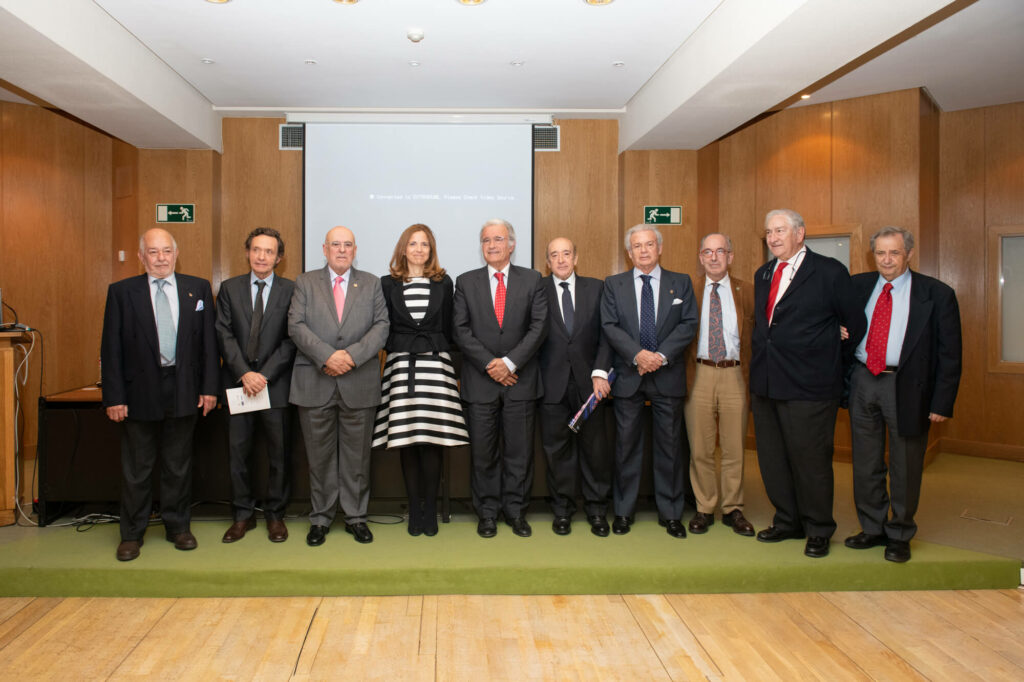Second session of “Breast Cancer: Towards the Future” cycle led by Analiza, first time all the screening company’s divisions feature in one session.
- 1 in 8 women estimated to get breast cancer in their lives.
- Breast cancer in Spain has 90% survival rate after 5 years.
Marking its 175th anniversary, Spanish Medical-Surgical Academy holds series of academic sessions at Faculty of Medicine at Complutense University Madrid. Leading figures of Spanish medicine have been members of this Academy, which stages scientific events and debates on Spanish health system and trains healthcare professionals.
This medical session fulfilled two of the company’s key commitments, which are the exchange of scientific knowledge and the multidisciplinary vision of diseases, focused in this case on a highly prevalent condition such as breast cancer. As highlighted by Nuria Martín Gil, CEO of Analiza, “our project was created to provide a new management model for clinical analysis laboratories in Spain. Our aim has always been to deliver an end-to-end diagnosis by incorporating the divisions of anatomical pathology and medical imaging, thanks to the commitment of our professionals to provide patients with all the medical knowledge possible and to foster the early diagnosis of the disease”.
In Spain, 32,825 new cases of breast cancer are diagnosed each year, according to 2018 data from the Spanish Association Against Cancer.
Screening is a key tool when it comes to confirming a breast cancer diagnosis, with ultrasound or mammography providing a clinical suspicion, but with biopsy being the only way to make a definitive diagnosis. The evolution of screening techniques has clearly been paramount in increasing the survival rate in Spain, which according to data from 2018 is 90% after 5 years.
Technological progresses have been crucial for this, as stated by Dr Jorge Gómez, Medical Director of Medical Imaging at Analiza, who, after analysing the evolution of breast cancer radiology from its advent to the present day, points out that technologies such as a biopsies with contrast-enhanced mammography are advances that will come in the near future.
The session, which addressed the evolution of techniques in various phases from diagnosis to surgery, was moderated by Dr Antonio M. Ballesta, Medical Director at Analiza, and was attended by the newly appointed academic, Dr Ana Maria Lluch, Head of the Haematology and Oncology Service of the University Hospital of Valencia, who spoke about new advances based on precision medicine. The talk about the evolution of the disease in the clinical management of breast cancer was given by Dr Emilio Álvarez, Medical Director of Anatomical Pathology at Analiza.
A recurring question about this disease is: where is breast cancer heading from a surgical point of view? According to Dr Augusto García Villanueva, Head of Surgery at the HLA Moncloa Surgery Service, “new advances in our knowledge about cancer biology are leading to an ever-increasing reduction in radicality. The practical disappearance of breast surgery in favour of other more effective therapies is even on the horizon, which will have a better impact on the quality of life of patients, as there will be a new option in which surgery might not be necessary”.

 Español
Español Português
Português
¿Quieres recibir noticias como ésta en tu email?
Suscríbete a la newsletter